
BFI London Film Festival 2025 Reviews: Hamnet, Jay Kelly and more!
Our coverage of this year’s edition of the BFI London Film Festival continues with new reviews of just some of the many buzzy titles that are showing in the heart of the capital!
And if you’re inspired to check any of these films out, click here to book (where available) on the BFI London Film Festival’s official website!
But for now, click the hyperlinks below to read our latest batch of LFF reviews!
Bad Apples (dir. Jonatan Etzler)
Click To Read Our Review For Bad Apples!
WHO’S IN BAD APPLES? Saoirse Ronan, Eddie Waller, Jacob Anderson, Rakie Ayola, Robert Emms, Sean Gilder, Kerry Howard, Jaye Jacobs
WHO’S BEHIND THE CAMERA? Jonatan Etzler (director), Jess O’Kane (writer), Oskar Pimlott (producer), Chris Roe (composer), Nea Harnebrandt Asphäll (cinematographer), Robert Krantz (editor)
WHAT’S IT ABOUT? A schoolteacher (Ronan) goes to extremes to control an unruly student…
WHAT ARE MY THOUGHTS ON BAD APPLES?
They say that children are the future, but that doesn’t account for the handful of tykes whose futures are looking dimmer by the day and, as horrible as it may sound, might not even be worth nurturing at all. Jonatan Etzler and Jess O’Kane, the respective director and writer of Bad Apples (the latter adapting Swedish author Rasmus Lindgren’s novel The Unwanted), exaggerate this concept with a firm emphasis on the grim reality that every now and then you’ll get a kid so rotten that his forced removal may actually be the answer to a wide array of problems, even if it creates a whole bunch more consequences in the process.
In exploring that notion with oodles of pitch-black comedy at its disposal, the filmmakers have essentially made the Dr. Strangelove of school-set satires, one where you’ll be shocked – yet thoroughly entertained – by how far they’re willing to stretch their concept.
The kid in this scenario who’s causing as much trouble as he breathes is Danny (Eddie Waller), a young ne’er-do-well whose volatile and disruptive behaviour keeps the remaining class of put-upon teacher Maria Spencer (Saoirse Ronan) from progressing with their education. Naturally, the lion’s share of the blame falls on Maria herself, with frustrated parents and even the headmistress Sylvia (Rakie Ayola) and her deputy – who’s also Maria’s ex – Sam (Jacob Anderson) telling her to step up her game, or it’s curtains. But during a heated confrontation with her unruly student, Maria winds up abducting Danny and holding him prisoner in her basement, his endless screams drowned out by the conveniently soundproof glass doors and windows of her fixer-upper home.
This would be the point where a search would get underway for the missing child, but where Bad Apples strays from convention is how, aside from Danny’s understandably concerned father Josh (Robert Emms), nobody actually cares that this kid is gone. In fact, it’s probably the best thing that could have happened to everyone, for not only does Maria’s class begin to thrive in their fellow classmate’s absence, but an impromptu Ofsted inspection gives the school commendatory feedback and finally sets the establishment on a path towards greatness. Even Danny, strapped to a chain and harness in Maria’s basement, is doing well as she gives him private tutoring sessions and, in a revelation only ever hinted at but nonetheless apparent, more attention than his overworked father possibly ever gave him.
It’s a situation where you know deep down that this is an extremely twisted situation, yet the film does a good job of making you feel how much better off everyone is thanks to this criminal act. From the moment we first meet Danny, who’s causing havoc during a class trip to the local cider mill, it’s immediately apparent that he’s a little demon who single-handedly makes the likes of Bart Simpson and Damien from The Omen both look like Anne of Green Gables. All with the sadistic gaze of a future serial killer (brilliantly played by young Waller, by the way), he swears and picks fights in the classroom, throws kids’ backpacks onto the roof after school, and even pushes a girl down a flight of stairs when she tries to befriend him. It’s no small wonder why anyone, adult or child, would be glad to wipe their hands clean of this miniature nightmare, and what Etzler and O’Kane capture so well is the hopelessness whenever this kid is present, making later scenes where he’s no longer in the picture feel like cathartic releases of joy and bliss… until you’re reminded of the fact that there’s a child locked up in someone’s basement.
Swedish director Etzler, making his English-language debut, brings an identifiably Scandinavian dryness to the humour in O’Kane’s script that revels in nasty and even uncomfortable behaviour, not so much from Ronan’s Maria (which is saying something, given she’s the criminal in this scenario) but from others who themselves may turn out to be more sinister than her volatile captee. One character, initially introduced as a Lisa Simpson-esque teacher’s pet, turns out to have a sadistic streak of her own, albeit a less violent one than Danny’s but no less concerning, especially for a girl of her age. Later on, you’ll have whole groups of people debating a disturbing issue that in any other reality would not even call for a debate, and all the while Maria – whom Ronan pumps with so much worn-down likeability that you too will be vaguely rooting for her to get away with it – is wrestling with the notion that she’s effectively giving up her integrity (not to mention her potential freedom) in the name of her children’s wellbeing and education.
It succeeds at being darkly funny and also at being quite tense, particularly as Chris Roe’s score heightens the mood during a few key scenes, and while it starts to lose a bit of its steam towards the end, with the somewhat ambiguous conclusion hinting at further disruption down the line, Bad Apples manages to hold steady with its fun approach to an uncomfortable range of satirical topics. The film is a good bit of entertainment, which is perhaps the most shocking thing about it since it is, again, effectively calling into question whether certain children can and should be put forward as examples of what tomorrow can bring.
SO, TO SUM UP…
Bad Apples is a wickedly entertaining pitch-black satire that takes devilish delight in depicting certain responses to an otherwise uncomfortable situation, one that’s led by a strong turn by Saoirse Ronan and director Jonatan Etzler’s dryly droll approach that prevents the scenario presented in Jess O’Kane’s darkly funny script from becoming too rotten to consume.
⭐⭐⭐⭐
Good Boy (dir. Jan Komasa)
Click To Read Our Review For Good Boy!
WHO’S IN GOOD BOY? Stephen Graham, Andrea Riseborough, Anson Boon, Kit Rakusen, Monika Frajczyk, Savannah Steyn, Callum Booth-Ford, Austin Haynes
WHO’S BEHIND THE CAMERA? Jan Komasa (director), Bartek Bartosik and Naqqash Khalid (writers), Ewa Piaskowska, Jerzy Skolimowski and Jeremy Thomas (producers), Abel Korzeniowski (composer), Michał Dymek (cinematographer), Agnieszka Glinska (editor)
WHAT’S IT ABOUT? A young criminal (Boon) is kidnapped and forced into an unusual rehabilitation scheme…
WHAT ARE MY THOUGHTS ON GOOD BOY?
The concept of Stockholm syndrome, that classic survival-based coping mechanism where victims generate empathy and loyalty toward their abusers, is always on your mind during Jan Komasa’s Good Boy. The premise, as wild as it already is, never explicitly addresses the term itself, but that’s obviously what’s going on as the Polish director, working from a script by Bartek Bartosik and Naqqash Khalid, shows clear as day the gradual progress of what it’s like to psychologically submit to a twisted situation and even further warped environment.
Such a thing would be fine, even fascinating, if it weren’t for the fact that neither Komasa nor his screenwriters appear to know what tone to ultimately settle on. Since it’s never quite sure whether to treat itself as a dark comedy, a suspense thriller, or even a wholesome family drama, Good Boy ends up sending mixed messages about what it’s trying to say, some of which are far more concerning than others when you pause to think about their disturbing implications.
The film opens with Tommy (Anson Boon), an utterly repugnant young man, causing plenty of violent and sexual mischief during a booze-soaked and drug-fuelled night out on the town, which abruptly ends when he’s abducted by a stranger and wakes up chained by the neck in their ominous basement. Said stranger turns out to be Chris (Stephen Graham), a polite and well-dressed family man living on a secluded estate with his near-catatonic wife Kathryn (Andrea Riseborough) and their young son Jonathan (Kit Rakusen), who’s ever chipper but hiding a distressing need to please his parents. The family’s intentions with their new houseguest are simple: get him to understand and take responsibility for his thuggish behaviour, and take the path toward being a better, kinder and all-around acceptable member of society. Should he step out of line, he’s beaten or electrocuted into submission, which very much like an untrained dog – hence where the title Good Boy comes into play – enhances his obedience training.
At first, Komasa positions his film as a straightforward kidnap thriller, albeit one with traces of dark comedy as the juxtaposition of the prim and proper environment and mannerisms displayed by the family against the dark secret underneath their feet gets a few uneasy chuckles. But then, the pitch-black humour starts to become more apparent, and while it doesn’t entirely forget about the thriller aspect it certainly isn’t as concerned with it as it was beforehand, leaving you uncertain whether to laugh with legitimacy or awkwardness. By the time you’ve figured that out, Good Boy has reverted to a much more wholesome family drama, another piece of intentional juxtaposition but one that’s even further off from its horrifying context and much less sure of what it’s actually going for. Sprinkled in between are moments that once again recall that psychological thriller angle, like one harrowing scene of young Jonathan being cruelly punished by his parents for being caught with a pack of cigarettes, and even a brief gangster subplot involving Monika Frajczyk’s Macedonian housemaid Rina, but they are quickly forgotten before going right back to them being a happy(ish) family again.
If the filmmakers’ intention was to have the viewer feel as though they too are going through the bouts of Stockholm syndrome alongside its protagonist, it’s an oddly imbalanced way of showing it. Komasa seems unsure as to whether we should be fearing this family or connecting with them, for whenever it seems as though a genuine bond is forged it’s suddenly pulled back by some unnerving behaviour on their part, which reminds us that this is indeed a demented unit whose ultimate intentions remain murky at best. It doesn’t seem to be quite as difficult a task for Boon’s Tommy, in whom you see a gradual shift in personality as he’s subjected to self-published video posts depicting his horrific past behaviour (how Graham’s Chris was able to collate these onto an old-school VHS, let alone how Tommy himself didn’t get permanently banned from social media for posting such dangerously violent content, remains a mystery), as well as classic literature like To Kill a Mockingbird and Ray Bradbury’s The Illustrated Man, and even the classic film Kes which elicits the first genuine tear we’ve seen from this guy.
Boon’s performance is quite strong in that regard, as are the ones by Graham, Riseborough and Rakusen who, for all their warped nature, are convincing as a somewhat dysfunctional yet oddly charming family, enough to where you do understand a little bit as to why Boon’s Tommy would be won over onto their side. But that doesn’t fully shake the uncomfortable vibes one gets from a film that ultimately doesn’t seem confident in its ability to address the psychological toll of what is effectively a brainwashing procedure, especially with an ending that is presented as this major heartfelt gesture despite the implications, and what it’s trying to teach, being pretty horrific in retrospect.
Again, this would be fine if the film maintained a consistent tone throughout, but the muddled approach leaves Good Boy with less on its mind than it’d like to think, with the only way you’d fully get behind its twisted mentality is if you too develop Stockholm syndrome whilst watching it.
SO, TO SUM UP…
Good Boy is an oddly imbalanced kidnap thriller that seeks to address and replicate the process of Stockholm syndrome, but despite strong performances from the likes of Stephen Graham and Anson Boon, an inconsistent tone that fluctuates between dark comedy and wholesome family drama further warps the misguided messaging.
⭐⭐½
Wake Up Dead Man: A Knives Out Mystery (dir. Rian Johnson)
Click To Read Our Review For Wake Up Dead Man: A Knives Out Mystery!
WHO’S IN WAKE UP DEAD MAN: A KNIVES OUT MYSTERY? Daniel Craig, Josh O’Connor, Glenn Close, Josh Brolin, Mila Kunis, Jeremy Renner, Kerry Washington, Andrew Scott, Cailee Spaeny, Daryl McCormack, Thomas Haden Church, Jeffrey Wright, Annie Hamilton, James Faulkner, Bridget Everett, Noah Segan
WHO’S BEHIND THE CAMERA? Rian Johnson (director, writer, producer), Ram Bergman (producer), Nathan Johnson (composer), Steve Yedlin (cinematographer), Bob Ducsay (editor)
WHAT’S IT ABOUT? Benoit Blanc (Craig) investigates the unusual death of a controversial priest (Brolin)…
WHAT ARE MY THOUGHTS ON WAKE UP DEAD MAN: A KNIVES OUT MYSTERY?
In each one of Rian Johnson’s series of murder-mystery films featuring Daniel Craig’s southern-fried detective Benoit Blanc, the filmmaker has addressed modern socio-economic issues with sharp wit and intricately layered plotting, all through the eyes of a marginalised individual who has felt the full brunt of such things. In the original Knives Out, the topic of generational wealth and entitlement was told via Ana de Armas’s migrant nurse working for a family that treated her and others with passive-aggressive contempt. Then, in Glass Onion, Janelle Monáe helped expose the hollowness and even the idiocy of powerful would-be disruptors who were too unaware of their own dickishness.
Now, with Wake Up Dead Man, Johnson aims bigger than ever with not just a fierce dissection of the perversion and hypocrisy within modern-day religion, but also a fresh new audience avatar that has the ability to see things from both sides of the aisle and thus can come to a more complex and rational judgement than previous counterparts. Luckily, Johnson keeps a level head upon himself as he slowly unfolds yet another compelling mystery that, while perhaps not quite reaching the same heights as past films, is more than entertaining enough to keep you engrossed.
Long before Craig’s Blanc enters the picture, we see how Reverend Jud Duplenticy (Josh O’Connor), a former boxer who turned to Christianity following a deadly match, becomes unnerved by the unhinged practises of Monsignor Jefferson Wicks (Josh Brolin) upon arriving at his church. Jud witnesses the priest displaying a venomous cult of personality among his fleeting flock of supporters, including devout believer Martha (Glenn Close), struggling sci-fi novelist Lee Ross (Andrew Scott), wheelchair-bound cellist Simone (Cailee Spaeny), local lawyer Vera (Kerry Washington) and her aspiring right-wing politician half-brother Cy (Daryl McCormack), and town doctor Nat Sharp (Jeremy Renner) whose wife has suddenly deserted him. All, including Jud, are present at a Good Friday sermon where a seemingly impossible crime is committed: Wicks, in a sealed room with no way in or out other than the door through which he entered, is fatally stabbed in the back, for which Jud – the only one to display actual antagonism toward the now-dead priest – is promptly blamed for by the congregation, and even local police chief Geraldine (Mila Kunis).
When Blanc finally makes his grand entrance – with Craig now sporting a rather dapper long-haired look that hopefully is how his character presents from here on – you’ll almost have forgotten that this is a Knives Out film, for Johnson has done such a grand job of establishing these new characters and the complex narrative surrounding them that, in a way, you almost wish the detective didn’t turn up at all. Of course, Blanc himself remains a delightful character, with Craig once again having plenty of fun immersing himself deeply into the detective’s magnetic flamboyance, but Wake Up Dead Man thrives most on its colourful new set of characters who all provide moments of humour (most of it at their expense) as well as humanity, which the ensemble cast conveys while still exposing the flaws buried deep within them. Regardless of screen time or backstory, which some characters have more of than others, they are given plenty of room by Johnson to feel fleshed out and interesting enough to apply reasonable doubt in their overall guilt or innocence in the crime.
Most of all, they serve as stark personifications of the lengths to which religion can have a hold on people, though in this case, and to an arguably more dangerous degree than the actual murder, these characters have such a warped idea of what Christianity is that it barely even aligns with Jesus’ actual teachings. Brolin’s Wicks is a blatant tyrant whose fire-and-brimstone sermons are designed to shame and offend newcomers as much as they embolden and satisfy his loyal flock, many of whom share ignorant beliefs of their own that their version of this faith provides some kind of twisted comfort. Even the more level-headed outsider Jud, played with fierce down-to-earth charm by O’Connor, is uncertain about his own commitment to the faith since he got into it more or less for his own benefit, as a means to spiritually atone for his past mistakes instead of actually consoling members of his congregation. Each character’s faith, or lack thereof in Blanc’s case, plays a complicit part in the central mystery, their enablement of Wick’s bullying extremism ultimately leading to dire consequences for all within a much darker and more gothic tone than Blanc’s previous outings.
Occasionally, the film stumbles as it tries to cram in one too many twists and turns, some of which don’t quite add up from a logical standpoint. The ultimate reveal of the culprit – or maybe even culprits – is fairly easy to guess, a problem that has been consistent with all these Knives Out films which, for all their mystery and intrigue, lead to fairly obvious outcomes. But as Johnson proves over and over with his Benoit Blanc mysteries, the real thrill is in the journey toward that conclusion, and the filmmaker clearly enjoys playing around with the murder-mystery template so much that his enjoyment rubs off on the film itself, which makes it all the more fun to watch play out in the same way a classic Agatha Christie or Arthur Conan Doyle book does. And with Wake Up Dead Man, Johnson’s ambitious gamble once again pays off in ways that will have you ravenous for the next case in Blanc’s portfolio.
SO, TO SUM UP…
Wake Up Dead Man: A Knives Out Mystery is another entertaining whodunnit from filmmaker Rian Johnson that sees Daniel Craig’s ever delightful Benoit Blanc investigate a colourful new set of characters amidst a gothic religious backdrop, and while it might not be as sharp as previous entries it is fun and layered enough to keep you guessing.
⭐⭐⭐⭐
Tuner (dir. Daniel Roher)
Click To Read Our Review For Tuner!
WHO’S IN TUNER? Leo Woodall, Dustin Hoffman, Havana Rose Liu, Jean Reno, Lior Raz, Tovah Feldshuh, Nissan Sakira, Gil Cohen, C.S. Lee, Rek Lee, Ari Cohen Mann
WHO’S BEHIND THE CAMERA? Daniel Roher (director, writer), Robert Ramsey (writer), Michael Heimler, Teddy Schwartzman, JoAnne Sellar and Lila Yacoub (producers), Will Bates (composer), Lowell A. Meyer (cinematographer), Greg O’Bryant (editor)
WHAT’S IT ABOUT? A piano tuner (Woodall) finds a dangerous side-hustle as a criminal safecracker…
WHAT ARE MY THOUGHTS ON TUNER?
It’s a shame that Edgar Wright’s Baby Driver – the fast-paced tale of a young criminal with hearing issues and a passionate connection to music – isn’t remembered as fondly by audiences due to the fact that it stars not one but two alleged sexual predators, because once you remove that problematic aspect it’s a great action film with a killer soundtrack, memorable characters and performances, and some of the best-ever use of Wright’s kinetic filmmaking style.
One would like to think that Tuner, from director and co-writer Daniel Roher, is a safer version of Baby Driver, for it too is a fast-paced tale of a young criminal with hearing issues and a passionate connection to music – and, as a bonus, features only one main actor with misconduct allegations against them – and replaces the high-octane action with gentler, more intimate moments of character-based drama. However, that would somewhat undermine the film as its own entity, and as such it’s a charming if somewhat conventional ride that’s pleasant enough for a breezy, mostly harmless watch.
The film quickly introduces us to Niki (Leo Woodall), a young man who assists his aging mentor Harry (Dustin Hoffman) on jobs tuning the pianos of wealthy clients across the New York area. Unlike most of his clients, who don’t even play their pianos and just keep them out for display, Niki was once a gifted musical prodigy until he developed a hearing condition known as hyperacusis, which causes one to become extremely sensitive to loud or even mild everyday noises. He soon discovers that his condition makes him extremely apt at hearing the mechanical locks inside tightly closed safes, and when he becomes desperate for some extra cash he is persuaded by Uri (Lior Raz), the leader of a criminal gang posing as a security company, to use his sharp hearing skills to crack open safes containing priceless valuables. Things get a bit more complicated, though, when Niki meets and falls for Ruthie (Havana Rose Liu), a music student whose talent matches and possibly even surpasses the one that he once flaunted.
The film marks documentarian Roher’s narrative directorial debut after his Oscar-winning non-fiction political thriller Navalny, and it has the bearings of a filmmaker who clearly wears his influences on his sleeve, to where it’s hard to tell whenever his own voice becomes apparent. Going back to Baby Driver, there are more than just plot similarities as Tuner also features some energetic and accurately timed editing which illustrates the slick rising tension in certain scenes, and there are even one or two times when it even uses the same piece of music on the soundtrack, suggesting that not just Roher but also co-writer Robert Ramsey (who’s no stranger to crime comedies, having also penned the Eddie Murphy prison movie Life and the 2002 Tim Allen vehicle Big Trouble) had Wright’s movie on endless repeat while developing their own script. As a result, you’re left thinking more about the latter film than you are this one, and how it took a few more storytelling and filmmaking risks than Roher’s film which, try as he does to subvert some typical tropes, feels less willing to step out of its comfort zone.
In fairness, though, Tuner’s comfort zone is so cosy and inviting that you can understand why it would want to stay within it. Roher and Ramsey inject plenty of sweetness into their story as Woodall’s Niki, who for all intents and purposes is a decent enough guy slowly consumed by his moonlighting criminal career, is a character who quickly wins you over with a boyish charm and even a savant-like ability to identify exact piano notes in complex melodies, but then has you genuinely fretting over his less-wise choices later on, particularly as the heists he partakes in suddenly get more violent. Woodall also proves himself to be a formidable leading man with a natural likeability that allows the viewer to see his strengths while also not shying away from his more visible flaws, and his easy chemistry with the likes of Havana Rose Liu and Dustin Hoffman – who, while not on-screen as much, steals scenes with the gentle charisma that made him a cinema icon in the first place – lends him a strong screen presence that goes well beyond his pretty-boy looks.
The story itself is fairly predictable, save for a few brutal developments later on, and relies on tropes that feel a bit dated, even for the kind of movie that it’s attempting to be (without spoilers, there is a race to a music recital in this movie). There are also some beats which feel too coincidental for its own good, with certain characters just happening to be involved in certain activities that come back to haunt not just our protagonist but close figures around them. It’s far from deep when it comes to its characters, and by the end you’re left feeling like there could have been more to these people and what makes them tick, beside being the acceptable archetypes that they come across as.
But the important thing is that, while Tuner isn’t a heavily complex film by any means, it is an enjoyable one that coasts on its charm and swiftness without losing its audience. It may be no Baby Driver, but it reaches a high enough crescendo that makes it a formidable spiritual successor.
SO, TO SUM UP…
Tuner is an enjoyable if conventional crime caper that boasts enough pleasant charm, personified by formidable leading man Leo Woodall, to see it through its trope-heavy and at times redundant narrative.
⭐⭐⭐½
Jay Kelly (dir. Noah Baumbach)
Click To Read Our Review For Jay Kelly!
WHO’S IN JAY KELLY? George Clooney, Adam Sandler, Laura Dern, Billy Crudup, Riley Keough, Grace Edwards, Stacy Keach, Jim Broadbent, Patrick Wilson, Eve Hewson, Greta Gerwig, Alba Rohrwacher, John Hamilton, Lenny Henry, Emily Mortimer, Nicôle Lecky, Thaddea Graham, Isla Fisher, Jamie Demetriou, Louis Partridge, Charlie Rowe, Parker Sawyers, Patsy Ferran, Lars Eidinger, Kyle Soller, Tom Francis, Giovanni Esposito
WHO’S BEHIND THE CAMERA? Noah Baumbach (director, writer, producer), Emily Mortimer (writer), David Heyman and Amy Pascal (producers), Nicholas Britell (composer), Linus Sandgren (cinematographer), Valerio Bonelli and Rachel Durance (editor)
WHAT’S IT ABOUT? A famous actor (Clooney) and his loyal manager (Sandler) embark on a tender journey…
WHAT ARE MY THOUGHTS ON JAY KELLY?
In Jay Kelly, which is probably my new favourite Noah Baumbach movie, George Clooney takes on the most challenging role of his career: George Clooney.
Or at least, a thinly veiled version of George Clooney, for although the titular character whom he portrays is clearly drawn from the Oscar-winning actor’s career (to where, when it shows a montage of the fictional Jay Kelly’s work, it’s just clips from Clooney’s actual filmography), both personas could not be more radically different. What they share, though, is the sunbeam of A-list movie stardom that they bask in, relying on easy charisma and good looks to guide viewers along a journey that you might not otherwise be comfortable taking, one of many things that director and co-writer Baumbach keeps in mind during his excellent dissection of what it takes, and what must be sacrificed, to maintain that stardom.
Much like Clooney himself, Jay Kelly is a world-famous movie star with the world constantly awed by his mere presence, but (hopefully) unlike Clooney he’s kind of a mess behind the veil: egotistical, overly spontaneous, inconsiderate to the feelings and opinions of others, even his long-suffering manager Ron (Adam Sandler) who despite enduring all his flaws remains fiercely loyal to his client. Kelly soon enters a personal crisis when a chance encounter with former acting buddy Timothy (Billy Crudup, shining in the limited amount of screen time he has) prompts him to drop out of a lucrative new movie and head to Europe to follow his teenage daughter Daisy (Grace Edwards) on a trip with friends, with his entourage including Ron and publicist Liz (Laura Dern) in tow, all under the pretence of receiving a legacy award at a festival in Italy. Along the way, Kelly takes moments to reflect on his life choices that led to him becoming who he is, while Ron weighs his own responsibilities to his high-maintenance client and his own family.
Baumbach, who co-wrote the script with Emily Mortimer (who also has a small role in the film as a member of Kelly’s team), presents a portrait of a movie star that is certainly glamorous and heavily romanticised, but not once does it feel phoney or smug. Instead, the filmmaker uses that romanticisation as a weapon, luring us into the world of Jay Kelly with his alluring presence and natural charisma, only to then pull the rug on us as we see how this man is not just deeply flawed, but sometimes irredeemably so, especially when we see how he effectively screwed certain people over to get where he is in the present, be it aging film directors or even his own family. Kelly’s life is empty as a result, surrounded by sycophants and adoring fans but very few people with whom he doesn’t have some sort of transactional relationship.
The closest he has to a true friend is Sandler’s Ron, and even he gets the short straw time and time again by a guy whose narcissism won’t allow him to comprehend that Ron, arguably more so than even him, has a lot of stuff going on. When Kelly summons him on his spontaneous European trek, Ron is about to serve the match point in a tennis tournament with his daughter, leaving his wife Lois (Greta Gerwig) to deal with their ailments and allergies while he accompanies a client who gives him nothing in return for all the hard work he does behind the scenes. Sandler, playing one of his greatest characters as a dramatic actor, is nothing short of extraordinary as he conveys the eternal burnt-out nature of someone who has dedicated his life to someone like Jay Kelly, yet is in real danger of losing the stabler life he has built for himself as his client’s demands exceed that of his own.
There’s a lot going on underneath the surface of Jay Kelly, much of it having to do with the whirlwind nature of his central character’s personality, and Baumbach taps into his bouncier side as a director to show all of that. Like a modern day Christmas Carol, Kelly is haunted by sudden visions from his past, conveyed with old-fashioned moviemaking magic that sees Baumbach play around with sets and cinematography to transition near-seamlessly from one point in time to another, and there’s a real wonder in watching it all come together in ways that are both passionate and deeply emotional. As characters come and go, you see in their short appearances how their lives have been affected by the selfishness and inconsiderate tendencies of someone that always receives but never gives back, and Baumbach directs his actors in such an open and gentle way that they are able to show their internal pain and suffering from the sidelines, even as Jay Kelly himself hogs the spotlight.
It’s a beautifully composed film, literally in the case of Nicholas Britell whose pleasant score helps the energy of scenes remain afloat, while Linus Sandgren’s cinematography radiates with colour in ways that make everything from the pristine European landscapes to a dark and artificial movie set feel alive. Above all, it’s a movie that loves movies, specifically the people that work to the bone in order to make them a reality and rarely get the credit they deserve, so it’s little wonder why I loved Jay Kelly as much as I did, since it captures everything you’d want from an in-depth study of stardom while avoiding the feeling that you’ve seen such a film many times over.
SO, TO SUM UP…
Jay Kelly is a wonderful character study and celebration of the personalities behind the camera, good or bad, with filmmaker Noah Baumbach at the top of his game while getting some career-high performances out of the likes of George Clooney, who revels in playing a thinly veiled version of himself, and especially a never-better Adam Sandler.
⭐⭐⭐⭐⭐
It Was Just an Accident (dir. Jafar Panahi)
Click To Read Our Review For It Was Just An Accident!
WHO’S IN IT WAS JUST AN ACCIDENT? Vahid Mobasseri, Mariam Afshari, Ebrahim Azizi, Hadis Pakbaten, Majid Panahi, Mohamad Ali Elyasmehr, Delnaz Najafi, Afssaneh Najmabadi, Georges Hashemzadeh
WHO’S BEHIND THE CAMERA? Jafar Panahi (director, writer, producer), Philippe Martin (producer), Amin Jafari (cinematographer), Amir Etminan (editor)
WHAT’S IT ABOUT? In Iran, a chance encounter with his former captor (Azizi) leads a mechanic (Mobasseri) on a moral crusade…
WHAT ARE MY THOUGHTS ON IT WAS JUST AN ACCIDENT?
Few filmmakers can claim to be as brave as Jafar Panahi, for the Iranian filmmaker – a long-time critic of the country’s totalitarian regime – has repeatedly defied arrests, imprisonments, and decades-long bans on filmmaking to keep creating movies that outwardly criticise the inhumanity that his own government inflicts upon its citizens. His latest film, It Was Just an Accident, is by far the most high-profile critique he’s yet made – least of all because it walked away with the Palme D’Or at this year’s Cannes Film Festival – but also potentially the most powerful.
Much more outwardly vocal than Panahi’s previous films about the horrors and traumas that ordinary people have been forced through, and how such things can make monsters out of us all, It Was Just an Accident is, understandably, a profoundly angry and pessimistic film. Nonetheless, you are completely empathetic towards its volatility, because Panahi has crafted an endlessly gripping revenge thriller based around what most persecuted Iranians, including perhaps the filmmaker himself, can only wish to do to their oppressors, enough to where it can leave audiences who are lucky enough not to be living under such conditions to feel pretty pissed off as well.
The film begins with a man known as Eghbal (Ebrahim Azizi) who, whilst driving at night with his family, unintentionally runs over and kills a dog. “It was just an accident,” the wife tells their upset young daughter, and so is the fact that, after the car malfunctions shortly after, they end up outside of a garage hoping for help to restart the vehicle, which is also where Vahid (Vahid Mobasseri), a mechanic suffering from problems with his back and kidney, witnesses Eghbal wandering the garage, his prosthetic leg squeaking an all too familiar sound to Vahid’s ears.
As it turns out, Vahid is a former political prisoner who was tortured and left with permanent bodily damage by an intelligence officer with a very similar lack of leg, and is immediately convinced that the very same man has now wandered into his vicinity. So begins a personal quest for Vahid as he stalks and then abducts Eghbal, intending to take his sweet revenge on the man who ruined his life. But not before consulting a few of the man’s other potential victims, including photographer Shiva (Mariam Afshari), bride-to-be Goli (Hadis Pakbaten) – whose groom Ali (Majid Panahi) dutifully tags along – and volatile worker Hamid (Mohamad Ali Elyasmehr) to make sure that he indeed has the right man.
There isn’t an ounce of flab on Panahi’s narrative, with every moment right down to the least consequential ones feeling utterly necessary for the unnerved tone throughout, and only adding to the immense pressure you’re feeling with each step that these characters take toward a troubling resolution. The director knows just what he wants to say and how he wants to say it, whether it’s via a series of heated arguments these people have among each other about the ethics and even the philosophy behind inflicting similar violence onto someone who dished it out to them, or in a few long-takes where the camera stays firmly on its subject as they wander aimlessly through specific scenarios. Panahi’s direction is sharp in its damning portrait of a country so consumed by suppressed emotion that the sheer prospect of vengeance plays out as an almost cathartic exercise for those who may be too scared to act, having been beaten and psychologically, possibly even sexually, abused into submission by who they think is lying unconscious in Vahid’s van.
Even if one were to take away the fierce political commentary (though to do so would be to rob the film of its ultimate reason for being), It Was Just an Accident still works as an engrossing thriller where you’re never quite sure how it’s going to play out. There’s no musical score throughout the entire film, save for a few diegetic blasts of music on the radio, with Panahi relying entirely on mood and the performances of his cast to boil the rising tension until it’s on the verge of flooding the entire cooking surface. It often leaves you gasping at some of the unexpected developments along the way, including one that involves the abducted man’s pregnant wife, and another that consists of an unnerved run-in with a pair of crooked security guards, because Panahi paces his film so well and presents characters in such a way where you completely understand their viewpoint, as extreme as some of them may be. The film can even be darkly funny at a few points, with improvised ways of covering up their intentions to others resulting in a few uneasy laughs, albeit to a point where it doesn’t quite fit alongside the rest of the movie.
But the core theme at the film’s heart is anything but funny. Through mere dialogue alone, Panahi conveys the horrifying brutality that citizens have to endure under such an oppressive system, and how there is very little hope of humanity winning out in the end, no matter how far some go to try and do the right thing in the wrong environment. This is especially apparent in a closing piece of imagery, complete with chilling sound design, that is exceptionally chilling, yet also open to interpretation – though most if not all possible explanations do not amount to anything positive for those involved. It’s a final shot that strongly conveys how, regardless of whether or not we do the right thing, there is no escaping a system that has been intricately designed to favour the powerful and not the powerless.
It’s far from an accident as to how this scored the highest prize at Cannes, nor is it surprising that it’s one of the year’s most intense movies, from one of the braver filmmakers working today.
SO, TO SUM UP…
It Was Just an Accident is an exceptionally tense revenge thriller that sees filmmaker Jafar Panahi at his most critical of the oppressive Iranian regime, all through a compelling and well-structured narrative filled with unexpected turns and haunting imagery.
⭐⭐⭐⭐½
Hamnet (dir. Chloé Zhao)
Click To Read Our Review For Hamnet!
WHO’S IN HAMNET? Jessie Buckley, Paul Mescal, Joe Alwyn, Emily Watson, David Wilmot, Jacobi Jupe, Olivia Lynes, Bodhi Rae Breathnach, Freya Hannan-Mills, Dainton Anderson, Elliot Baxter, Jack Shalloo, Sam Woolf, Hera Gibson, Noah Jupe
WHO’S BEHIND THE CAMERA? Chloé Zhao (director, writer, editor), Maggie O’Farrell (writer), Nicolas Gonda, Pippa Harris, Liza Marshall, Sam Mendes and Steven Spielberg (producers), Max Richter (composer), Łukasz Żal (cinematographer), Affonso Gonçalves (editor)
WHAT’S IT ABOUT? William Shakespeare (Mescal) and his wife Agnes (Buckley) deal with an unspeakable loss…
WHAT ARE MY THOUGHTS ON HAMNET?
“The rest is silence,” so Hamlet famously remarked as he drew his last breath (spoilers, I guess, for a centuries-old story). But as we discover in filmmaker Chloé Zhao’s incredible new feature Hamnet, the origin of William Shakespeare’s classic play and arguably one of the finest pieces of literature ever written is also marked in devastating loss, one that could only come from a deeply personal pit of despair where few could claim to crawl out of with their sanity or sense of optimism intact.
Zhao is one of those few, approaching her adaptation of Maggie O’Farrell’s novel (the author also co-writes the script with Zhao) from a place of endless suffering that anyone who has dealt with profound grief in their lives will entirely understand, and may even have found themselves in that place as well. Yet, she also imparts deep emotional wisdom that lends a surprisingly hopeful tone where, even in the lowest of moments, the most broken of hearts can be healed by the sheer beauty that humans are capable of, including creating art so impactful that it does more than just last for the ages.
As in the original novel, Hamnet tells a fictionalised version of how Shakespeare (Paul Mescal) met and quickly fell in love with Agnes Hathaway (Jessie Buckley), the free-spirited daughter of a woman deemed to be a “forest witch” by naysayers, namely the future Bard’s puritan family who do not approve of their son’s creative skills. They are even less so of his romance with Agnes, especially after a passionate tryst between them leaves her pregnant and subsequently wed to him, the father. But their love triumphs, and the two go on to expand their family with twins Judith (Olivia Lynes) and Hamnet (Jacobi Jupe), whom along with first-born daughter Susanna (Bodhi Rae Breathnach) are raised mostly by Agnes, while William is frequently travelling from their home in Stratford to London where he’s making a career out of writing plays.
But then, all too inevitably, tragedy strikes. Those who know Shakespeare’s life story will know full well what happens and who it happens to, but even still it hits you like an army tank full of bricks, and you may not be able to control your own emotions when it does. Zhao has such a lyrical way of showing real human drama unfold in such a spiritual yet grounded manner that you’re moved by the sheer cinematic poetry that she provides, in Hamnet’s case via some gorgeous cinematography by Łukasz Żal who creates imagery that could almost belong inside of paintings from that Renaissance era, and an atmospheric Max Richter score which provides its own brand of emotional resonance. Said score also includes one of the composer’s most famous tracks for the film’s most crucial scene, and without spoilers – though let’s just say it involves a certain Prince of Denmark – it all but guarantees there won’t be a dry eye in the house once that scene reaches a cathartic end.
The reason it lands as well as it does is because Zhao, quite intelligently, spends much of the movie building organically to the main inciting incident rather than flashing between scenes taking place before and after it. Both her and co-writer O’Farrell wisely take as much time as they need to show us the natural progression in Agnes and William’s relationship as well as their subsequent family life, keeping a stern focus on how they work as a unit to live a happy and comfortable life, and on pulling you into their world without feeling as though it’s becoming repetitive or even uneventful. It’s therefore easier to connect with these characters, including the young children who become perhaps the most essential piece of the film’s emotional puzzle, and thus feel much more strongly their joy, their melancholy, their frustration, their love, and so much more when things take a turn for the worst.
These actors, especially the two leads, convey all of these profound emotions to almost envious degrees. As the far more famous figure of the two, Mescal is fantastic, his Shakespeare filled with deep self-hatred that comes from experiencing little love among his family, including his father (David Wilmot) who takes every opportunity to verbally and physically abuse his adult son, and from hardly being there for his own children. Underneath lies a fiery passion that emerges whenever you see him putting his emotions into words that will soon become known the world over, to where he practically becomes a tyrant who yells at his actors for the slightest wobble in their rehearsal of his intricate dialogue. It’s all worth it, though, for Hamlet ends up being, well, Hamlet, and proves to be the cathartic release that’s desperately needed in such drastic times.
But as great as Mescal is, this is Buckley’s moment as she, even as an actor who has been nothing short of fantastic in virtually everything she’s yet been in, delivers her greatest performance to date. It is an emotional turn for the ages, as someone so overcome with uncertainty and despair amidst her own duties as a wife and mother that she can barely control herself when given the right amount of prodding, enough to see her go through various feelings and expressions that you don’t even see a lot of in most movies with such heavy subject matter. On top of that, Buckley channels so much humanity into Agnes that she never seems one-note, presenting well-chosen fragments of her core personality to share with the viewer who in turn can identify aspects of themselves in someone going through things that are unspeakable. The actor’s naturalist approach compliments the one that Zhao herself brings, with both performer and filmmaker working harmoniously to transform their character into someone who feels so real, like she could be any woman going through all of this, let alone the other half of the most famous playwright who ever lived.
Some will call Hamnet nothing but misery porn, or even cynical Oscar bait. Those people, it has to be said, cannot and will not understand the depths to which Zhao and her expansive team of collaborators have gone to convey a roundhouse of emotion that not only works but is genuinely tearjerking. This is a film that one has to experience in order to feel the true power of cinema, and how art such as the wonder that is Hamlet can help soothe our pain and open us up to emotions we all need in our lives, no matter how hurt we may be by them. Otherwise, the rest is silence.
SO, TO SUM UP…
Hamnet is a beautifully poetic meditation on love, grief and healing that sees filmmaker Chloé Zhao utilise her organic storytelling skills, along with phenomenal turns by Jessie Buckley and Paul Mescal, to craft an extremely emotional film that resonates deeply with anyone who has ever experienced what it is to feel.
⭐⭐⭐⭐⭐
If I Had Legs I’d Kick You (dir. Mary Bronstein)
Click To Read Our Review For If I Had Legs I'd Kick You!
WHO’S IN IF I HAD LEGS I’D KICK YOU? Rose Byrne, Conan O’Brien, Danielle Macdonald, Christian Slater, ASAP Rocky, Ivy Wolk, Daniel Zolghadri, Delaney Quinn, Ronald Bronstein, Lark White, Josh Pais, Eva Kornet, Mark Stolzenberg, Helen Hong, Ella Beatty, Manu Narayan, Amy Judd Lieberman
WHO’S BEHIND THE CAMERA? Mary Bronstein (director, writer), Ronald Bronstein, Eli Bush, Richie Doyle, Conor Hannon, Sara Murphy, Josh Safdie and Ryan Zacarias (producers), Christopher Messina (cinematographer), Lucian Johnston (editor)
WHAT’S IT ABOUT? A pressured woman (Byrne) deals with life as it comes crashing down on her…
WHAT ARE MY THOUGHTS ON IF I HAD LEGS I’D KICK YOU?
Motherhood is stressful. A blanket statement, sure, but it doesn’t make it any less true, even for mothers who have it way easier than others. The constant pressure of catering to the demands of one’s children, especially those too young to truly think for themselves, while also trying to balance your own commitments as both a parent and an actual human being can send anyone into a deep spiral of psychological turmoil, one that only seems to end when said children finally reach adulthood and possibly go on to experience parenthood for themselves.
In writer-director Mary Bronstein’s If I Had Legs I’d Kick You – a curious title, not just for its macabre expression but also for the fact it’s not even a line of dialogue, let alone an act that ever occurs – being a mother is depicted as probably the most thankless task one could be saddled with, and with her extremely unnerved approach the filmmaker presents it as more terrifying than most of the recent horror movies you may have seen.
Rose Byrne plays Linda, a woman who has been left alone by her husband Charles (Christian Slater) – who’s away on an extended work trip – to care for their young unnamed daughter (Delaney Quinn). A simple enough task under normal circumstances, except the child is suffering from a mysterious illness that requires her to have a tube inserted into her stomach at all times, leading to regular hospital appointments where the doctors simply refuse to further treat her unless Linda makes more family counselling appointments.
As if that wasn’t enough, Linda’s daughter – who, and it’s important to note at this point, we always hear but almost never see – is extremely high-maintenance, whining about small unimportant things and demanding her mother’s constant attention, whether it’s a simple gesture of love or wanting to get a hamster for a pet. As if that wasn’t enough, Linda is a therapist who is having difficulty managing her patients including Caroline (Danielle Macdonald), a clearly mentally unwell mother who abruptly abandons Linda – and her newborn baby – midsession, while receiving zero helpful advice from Conan O’Brien as a fellow therapist who always seems annoyed to even be in her presence. And as if THAT wasn’t enough, a giant hole appears in the ceiling of her apartment, forcing mother and daughter to temporarily move into a shoddy motel where the rude receptionist (Ivy Wolk) isn’t nearly as off-putting as the manager James (ASAP Rocky) whose good-intended concerns constantly give off creepy-nice-guy vibes.
I could go on forever with how many problems Linda faces in If I Had Legs I’d Kick You, but if at some point reading the above paragraph you felt a severe bout of anxiety swirling inside of you, then that’s exactly how you’re meant to feel. Bronstein creates an unusually claustrophobic world comprised of constant tight close-ups where you can practically see every crevice and wrinkle on characters’ faces, leaving you with as little breathing space as Linda does whilst she unravels in real time, so overwhelmed by the life she is seemingly trapped in that there’s no telling what she’ll do in order to break free from it (if, indeed, she can). The filmmaker externalises her slipping mental state in drawn-out scenarios that constantly push both her and the viewer closer and closer to the edge, with a harrowing sense of doom that grows by the second within a manic pace that barely slows down for you to take it all in, leaving you just as emotionally and psychologically drained as Linda is.
Byrne, in a career-best performance, firmly holds your attention as her character’s fragility becomes more and more apparent, and her fuse grows shorter and shorter. The actor absolutely nails the constant feeling of being squeezed like a zit until her innards come gushing out, enduring so much chaos from the moment we first lay eyes on her that you almost wonder if she experienced some kind of panic attack whilst filming, because there’s no way any sane person would be able to handle such heavy emotional weight without losing their mind at some point on set. Yet, Byrne holds herself together in a remarkably fine-tuned turn that sees her exploring so many levels with this character, most if not all of them worrying to some degree since this is a person who, at first out of morbid curiosity but later on out of close consideration, absorbs a story about a similarly overwhelmed mother who ended up murdering her own children.
Whether or not anything like that actually occurs in If I Had Legs I’d Kick You is far from the point, as Bronstein’s film is designed first and foremost as a nerve-wracking exploration of motherhood that is so dense with its depiction of what being an overworked parent can be like that, were such a morbid thing to happen here, it wouldn’t be entirely out of the ordinary. It even gets surreal in places, with holes such as the giant gaping one in her apartment becoming a recurring motif that represent a deeper venture into Linda’s evaporating sanity, though such moments can sometimes seem a bit too abstract in their feverishly artsy vibes (it’s in moments like this where you can definitely tell this is an A24-backed movie).
But with its phenomenal lead performance holding it all together, the film works well as a stressed-out look at what being a mother can actually mean. To be safe, though, maybe refrain from suggesting this for a Mother’s Day watch.
SO, TO SUM UP…
If I Had Legs I’d Kick You offers an extremely stressful look at motherhood and all its excess baggage, its overwhelming and occasionally abstract filmmaking held together by Rose Byrne’s fantastic lead performance as a mother always on the verge of insanity.
⭐⭐⭐½




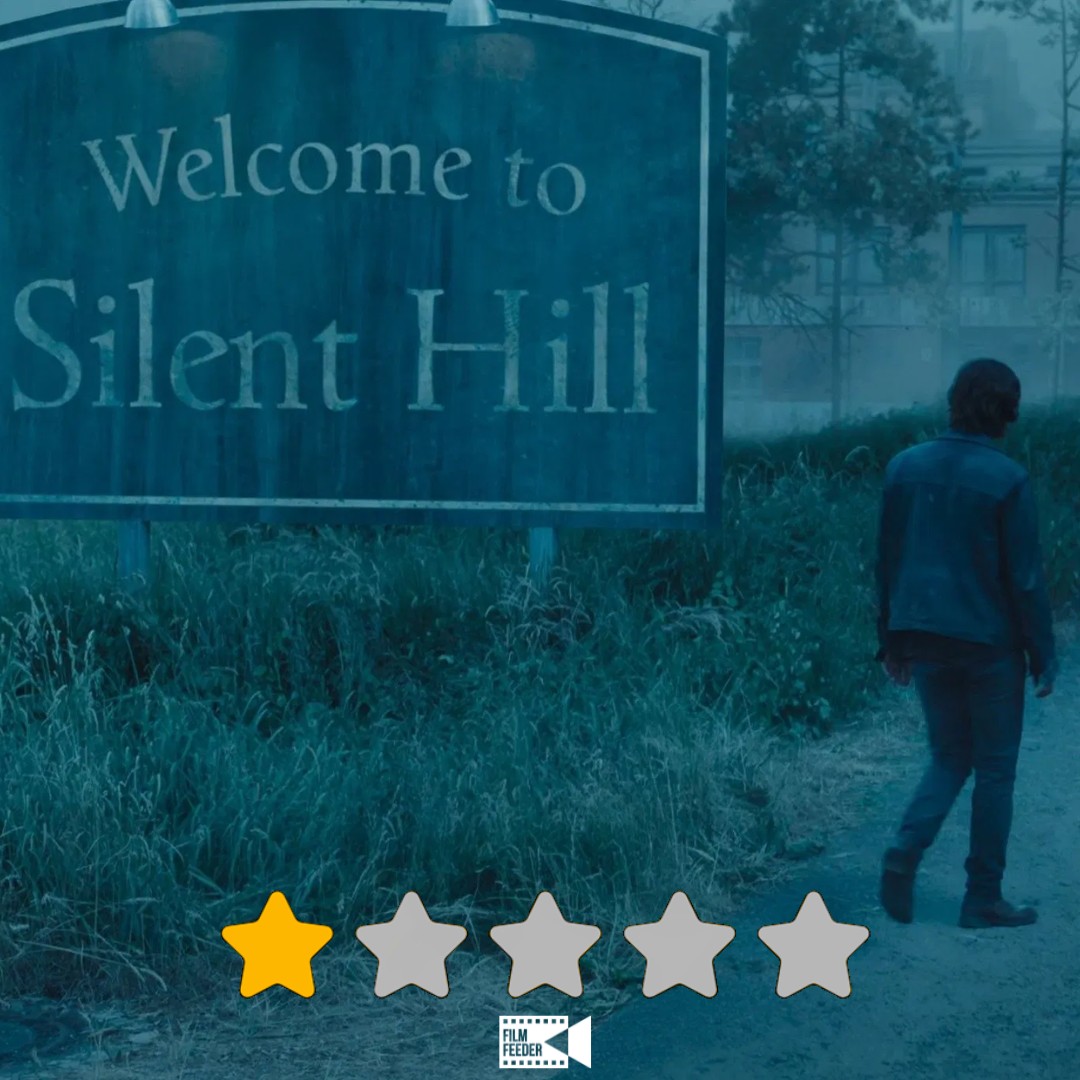
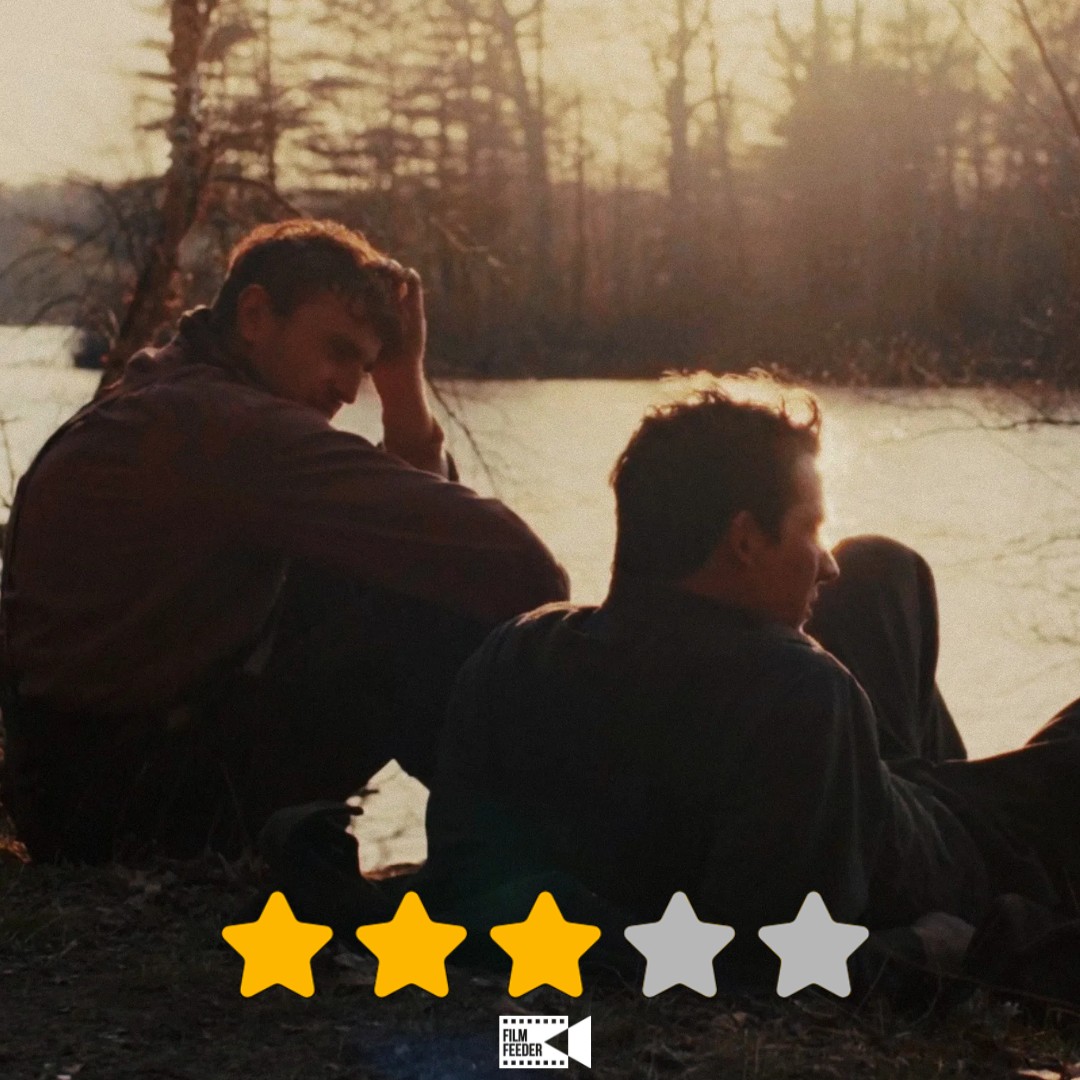


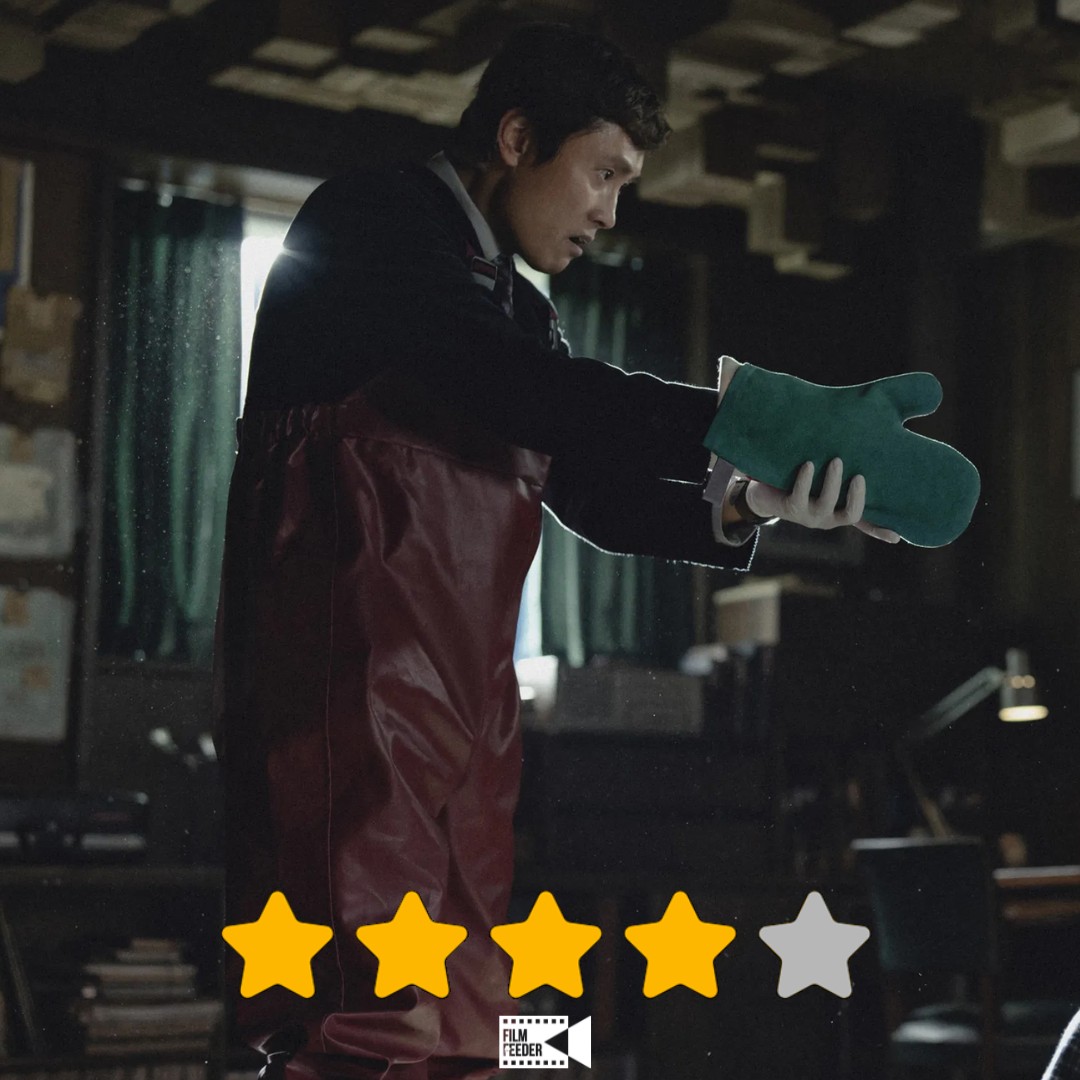
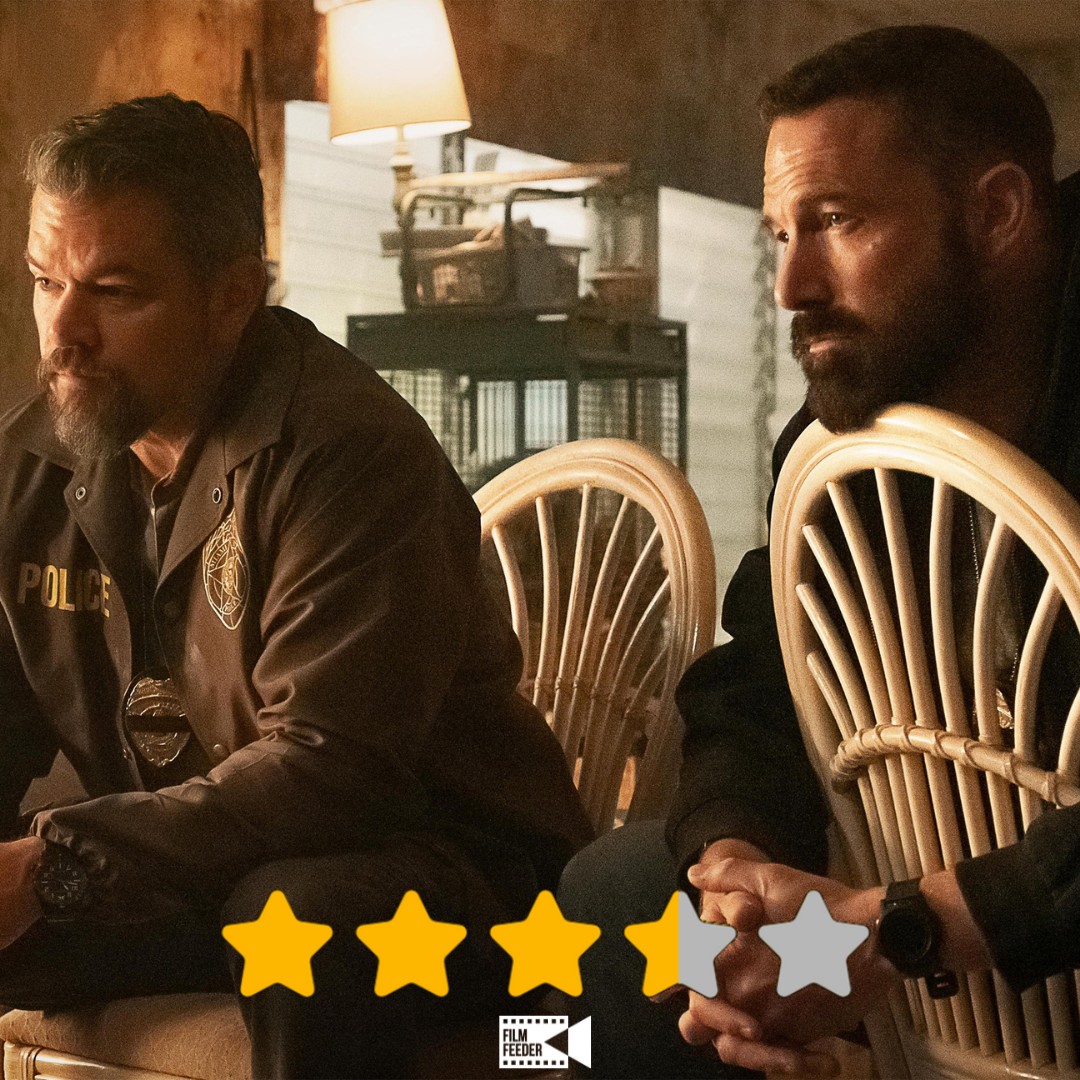
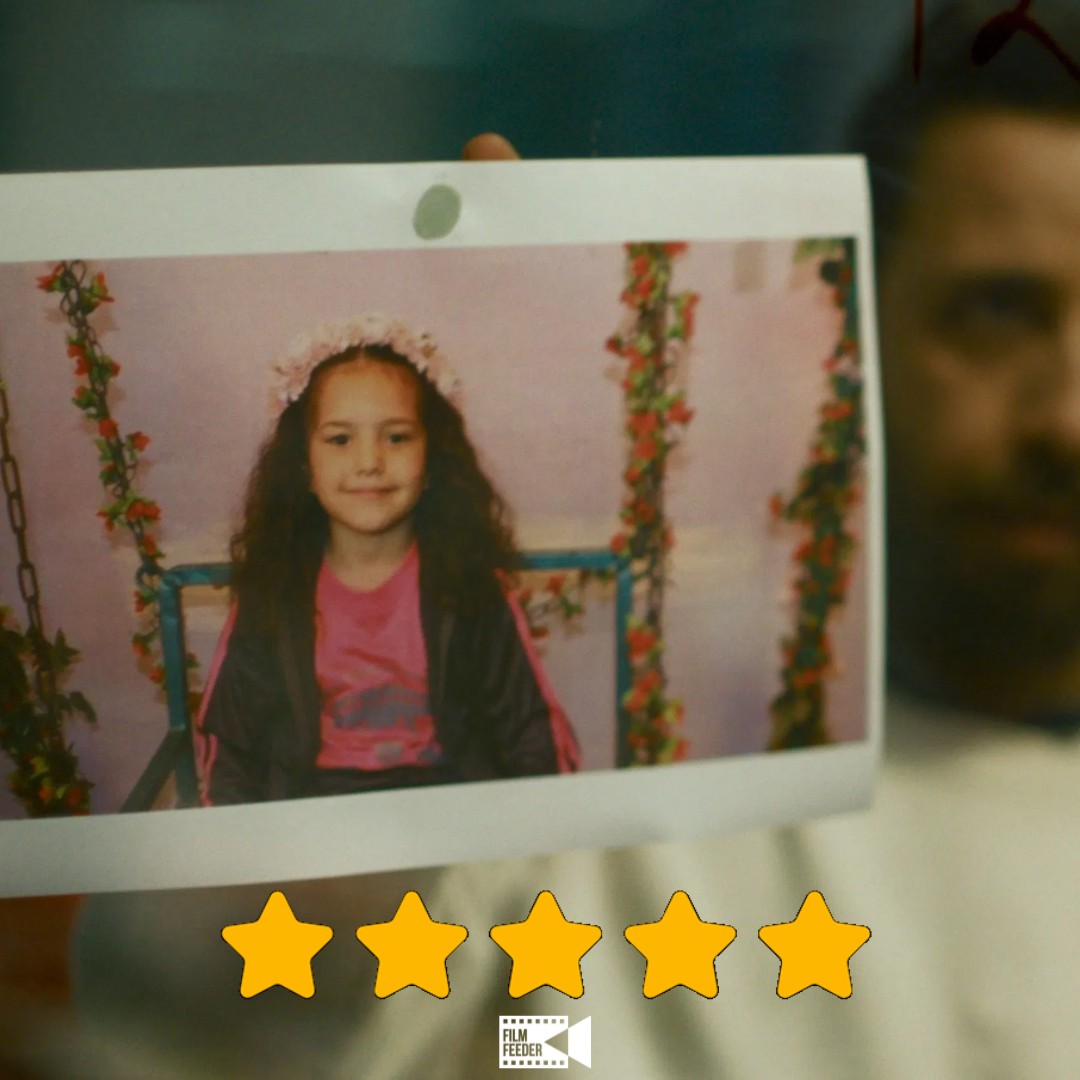

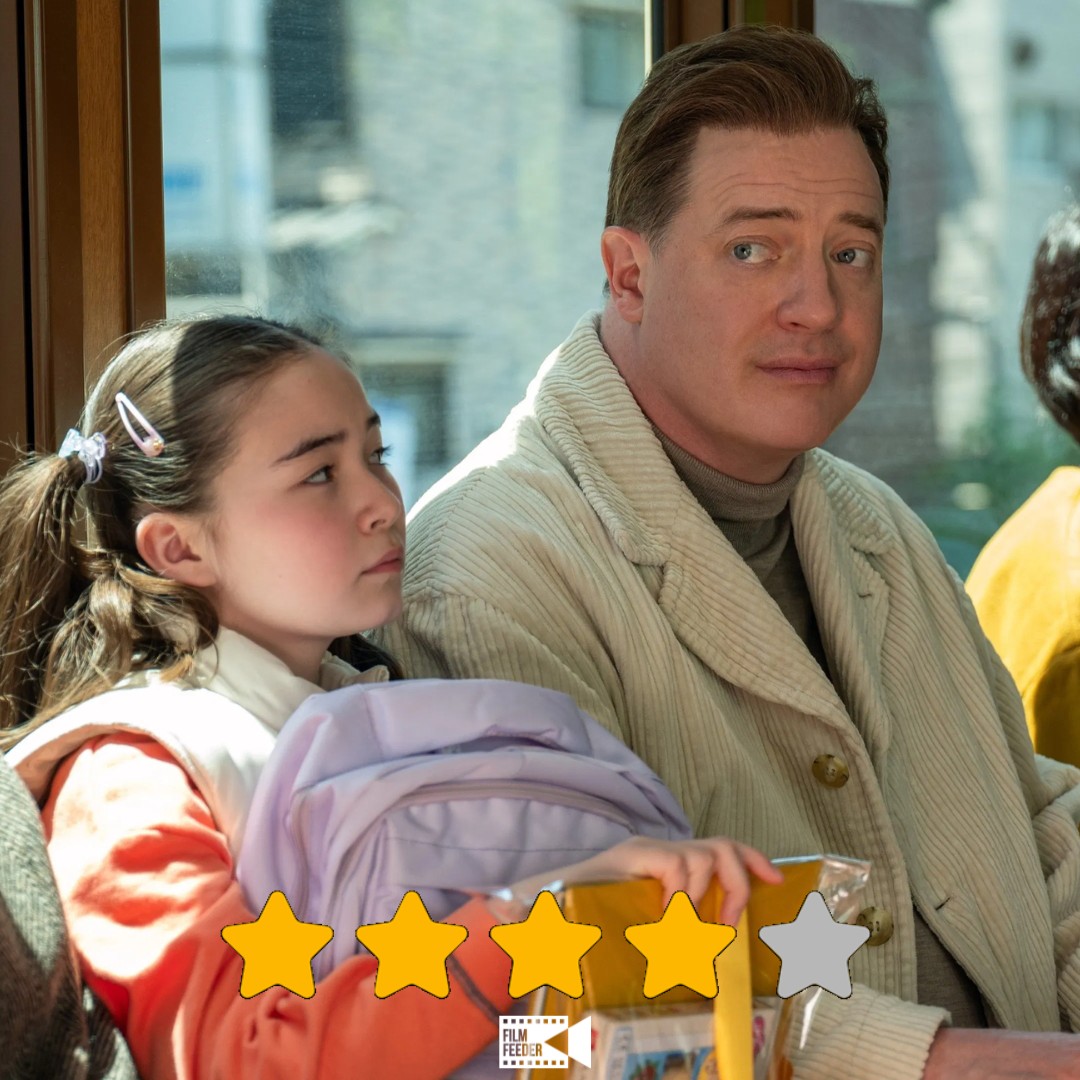
0 Comments